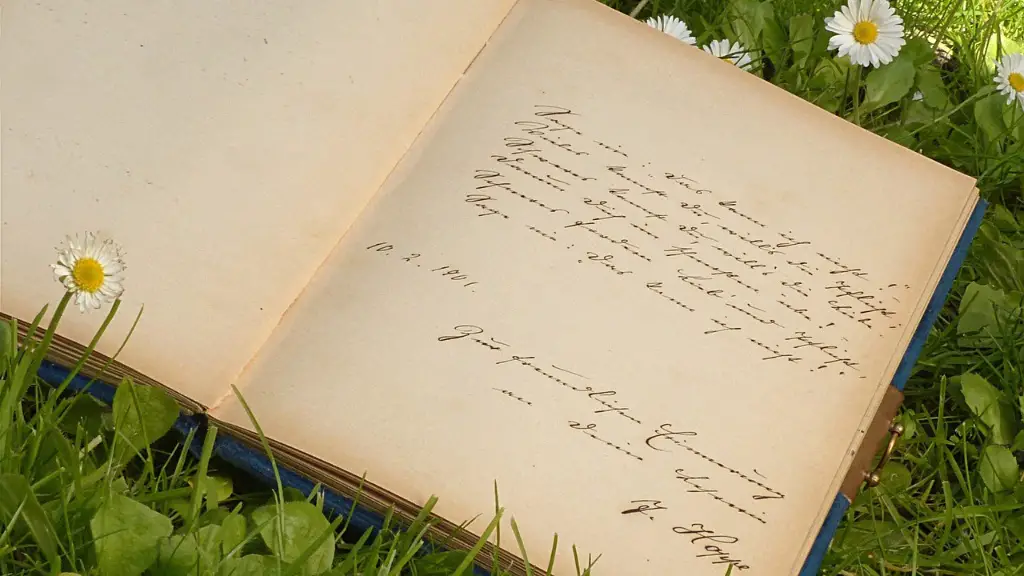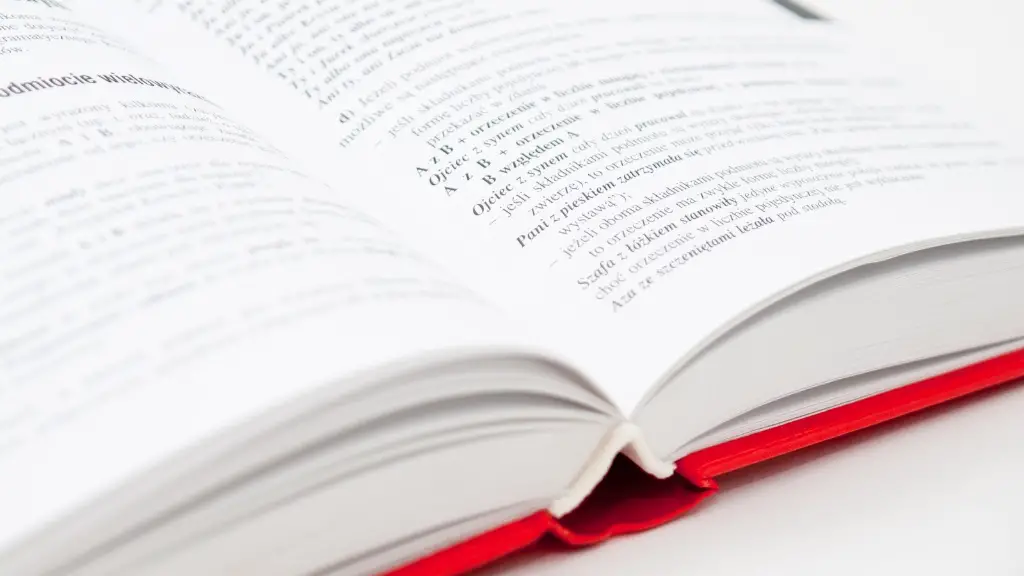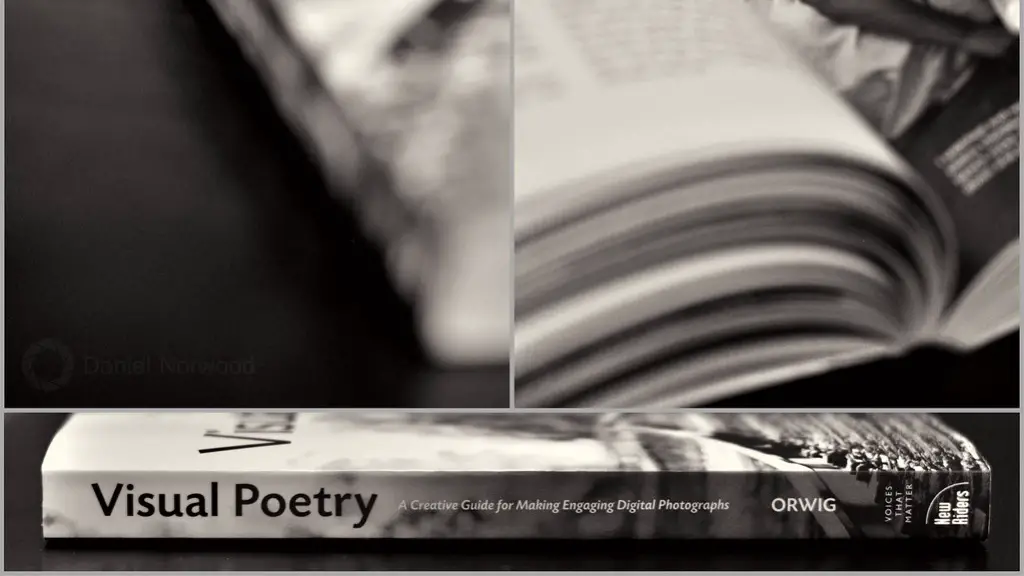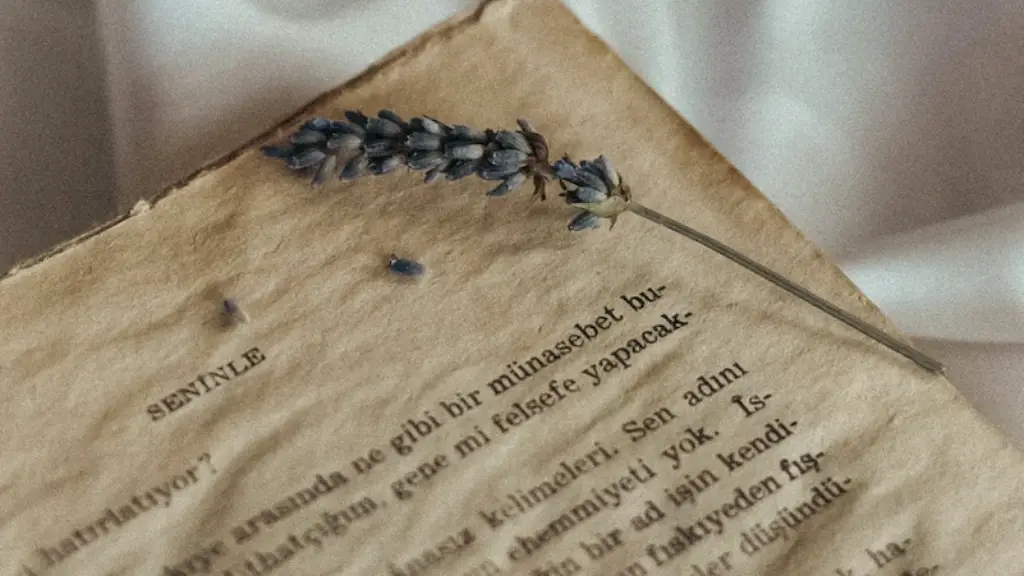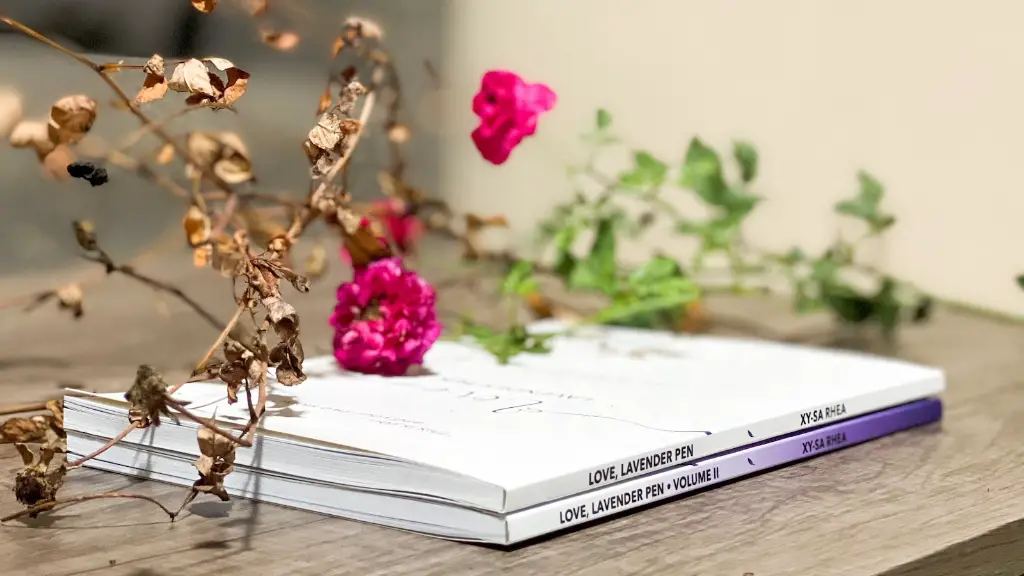Poetry has been around for centuries. It has always been part of literature, but is it a subgenre or an entirely separate form? This question has divided scholars for centuries, and there is no clear answer. Some argue that poetry is a form of creative writing that is more structured and concise than prose, full of rich imagery and emotions, and evoking powerful feelings from the reader. Others say that poetry is a type of literature because it is written to be read, not just for its beauty, but for its ability to express ideas, insights, and stories. So, is poetry literature?
For many of the earliest great works of literature, such as the epics of Homer, many believe that poetry and literature are inextricably linked. Poetry was seen as having a higher purpose than mere entertainment. It was used as an effective tool to teach morals and philosophy to generations, with an element of emotion at its core. It was considered to be a way to share ideas, values and emotions to a wider audience. Even in the earliest of literature, poetry was used to tell stories and impart knowledge, not just for its artistic value.
Today, the role of poetry has changed considerably. It is no longer seen as just a piece of literature, but rather a unique expression of art. It is a way to express emotions and opinions in a more creative manner, and many consider it to be a form of self-expression. Some believe that poetry should be considered a distinct form of literature, while others ask whether it is necessary to create a distinction between poetry and other forms of literature.
Many experts agree that poetry and literature have much in common. They concede that poetry has a unique power to evoke and evoke emotion, to call upon the reader to think beyond the words on the page and to feel. Both poetry and literature can be interpreted in many different ways, allowing the reader to draw their own conclusions. Each poem has its own distinct style and creates a unique world for a reader to explore.
Furthermore, literature and poetry are both art forms. They both attempt to create a mood, express a theme and tell a story, often with the power to profoundly impact the reader. Poetry, in particular, is known for its use of imagery, complex metaphors, and symbols. Its use of language can create powerful and vivid images, while its unique structure creates tension and suspense. Through its use of literary devices, it often speaks on a deeper and more meaningful level than other forms of literature.
Overall, the debate over whether or not poetry is literature can be seen as a matter of opinion. There is no right or wrong answer, and it ultimately comes down to your own views on art and literature. However, it is clear that poetry has many of the same qualities as literature, and it has the potential to evoke powerful emotions and create lasting connections between the reader and the words on the page.
The Connection Between Poetry and Literature
Though there is debate on whether poetry is a form of literature, there is no denying that the two are linked. Many scholars believe that literature is the umbrella term for all creative writing, including poetry, prose, and drama.
Poetry is an inspired form of writing, weaving together words and phrases to craft vivid imagery and metaphor. Poetry can stand alone, separate from the realm of literature, yet when combined with the foundation of literature, the creations blossom. Literature and poetry are an expression of ourselves, capturing life and emotion into tangible words.
Though there is a distinct difference between the two, when combined, the effect is greater than either one alone. Together, they can weave a story, enlighten us, and stir emotion into a unique and powerful composition
Literature helps to support the poetry and provide it with power, while poetry helps to elevate the literature and bring it to life. When both are used together it creates a beautiful creation, full of meaning and depth. While we can debate whether or not poetry is literature, the connection between them is undeniable.
The Benefits of Poetry
Poetry has many benefits and advantages to literature. It allows readers to express emotions and feelings in a creative way, to find beauty in the words and to connect in a very personal way. Poetry can also be used as a tool for healing, for focusing and for learning.
In the past, poetry has been used to express the feelings of a nation or a culture, capturing the emotions of a people in powerful words. Poetry can provide insight and understanding into feelings such as joy, despair, fear, and longing.
Furthermore, poetry can help us view things differently, to explore our own thoughts and to gain knowledge. It provides a form of solace and comfort, too. In this way, poetry can be a tool to improve our lives and to help us to better understand ourselves and the world around us.
The Power of Poetry
Poetry is often seen as powerful and it can be argued that it is more powerful than other forms of literature. This is because poetry uses language in a unique way that often speaks to us on a deeper level. It can capture complex emotions, stories and feelings in a few short words.
Because of its ability to evoke strong emotions, poetry can be used for a multitude of purposes, from healing to understanding. It can provide a platform to discuss heavy topics and to bring attention to important issues. It can be used as a form of protest, of expression and of inspiration.
In addition, poetry is often seen as an outlet for creativity and exploration. It provides us with freedom to explore new ideas and concepts, to express our unique personalities and to provoke change. It can be a powerful platform to educate and inform, to debate and to challenge certain views.
The Debate Over Poetry and Literature
The debate between literature and poetry is ongoing and it is clear that there is no definitive answer as to whether poetry is a form of literature or not. While some argue that poetry is a distinct form of literature, others say that it is just a type of creative writing that should not be seen as a distinct form.
It seems that the argument is more a matter of opinion. As different people have different interpretations of what constitutes literature, the answer to the question of whether poetry is a form of literature or not is likely to remain a matter of debate.
At the heart of the debate is the notion of beauty. Poetry has a unique ability to capture beauty in the words on the page, to inspire and provoke us. We all have sincere opinions on what is beautiful and what is not, and this likely will be the crux of this debate for as long as it continues.
The Future of Poetry and Literature
What is certain is that poetry and literature will continue to play an important role in our lives. Both are art forms, and both are sources of inspiration, education and exploration. As we move into the future, it is likely that the two will continue to be intertwined, to create powerful creations that can touch us in many ways.
One thing is certain: poetry and literature will continue to be a source of beauty and inspiration for generations to come. Though we can debate what is literature and what is poetry, there is no denying the power that each of these art forms has in shaping our lives.
The Role of Poetry in Education
The debate over poetry and literature can also be seen in the educational system. While some argue that poetry should be considered a part of literature and taught in classes dedicated to literature, others say that it should be its own separate study, like a foreign language.
Proponents of the latter view argue that poetry should be taught on its own because it is a unique form of art, and it should be given the same attention and respect as other subjects. They also argue that poetry can be used to teach other subjects, and that it is an effective way to instill knowledge and understanding into students.
On the other hand, those who believe that poetry should be taught as part of literature argue that poetry should be a part of the curriculum because it is a form of literature, and that it should be taught along with other forms of literature. They also point out that studying poetry can teach students a variety of skills, such as critical thinking, analysis, and writing.
Conclusion
Ultimately, the debate over whether or not poetry is literature is likely to continue. Whether you consider it a form of literature or a distinct type of art, there is no denying that poetry has the potential to evoke powerful emotions, provide insight and insight, and create lasting connections between the reader and the words on the page.
